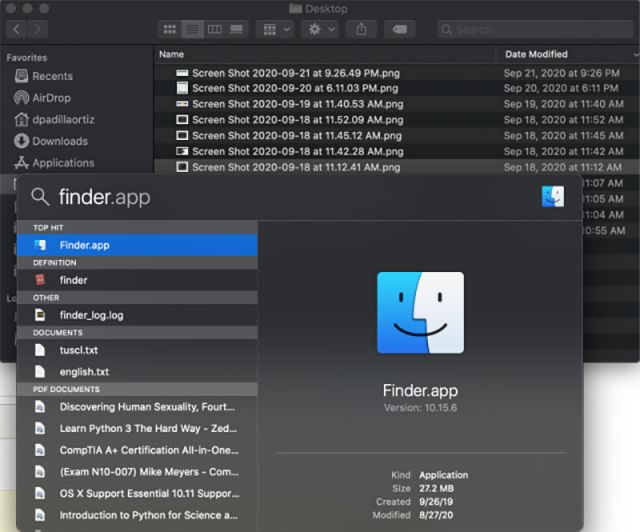Learn Your Science! Mac OS
As the Mac platform increases in popularity (Apple currently claim 20% of laptops sold are Macintoshes) it should come as no surprise that there are increasing numbers of students turning up to university with Macintosh laptops. Recent figures from the Apple-blogosphere suggest that around a quarter of new US students arrive with a machine running Mac OS X, and around half are planning on buying a machine from the company in Cupertino in the future. Some of these students will eventually make the move into postgraduate studies, and it makes sense that they’ll want to use the computers that they’ve become comfortable using. The Apple website has it’s own science section , with people using Macs to do everything from 3D medical imaging to submarine paleo-seismology.
The burning question, then, is just how suited to scientific research is the Mac? What tools and resources exist for the Apple-based scientist?
- Listed below are the support sites for operating systems supported by Apex Learning. Updating your operating system keeps your device working properly and protects against security threats. Microsoft Windows Support; Apple Mac OS X Support; Apple iOS Support; Android Support; Chrome OS Support.
- Learn new skills and discover the power of Microsoft products with step-by-step guidance. Start your journey today by exploring our learning paths and modules.
All Macs come installed with Mac OS X, a triumph of design and user friendliness. My mother uses a Mac Mini to surf the web and send emails, and she would be first to admit that she’s not a “computer person”. Mac OS X is, however, a bit of a dark horse; under that glossy skin beats the heart of a true UNIX machine. UNIX, a venerable command line based operating system famed for its power, allows the Mac to run all sorts of powerful number crunching programs. You can even create your own programs, using UNIX scripts or one of the many programming languages supported by Xcode. You can access the UNIX command line by opening the Terminal application, located in the Utilities folder in Applications. Investigate package managers like Fink or MacPorts put the world of UNIX programs at your finger tips.
In addition, Macs run their own version of Microsoft’s Office suite, so you don’t have to worry about not being able to open a document sent to you by a Windows using colleague. If you really can’t leave Windows behind totally, you can install Windows on any Mac running on Intel hardware, using Apple’s BootCamp. Third party solutions such as Parallels Desktop or VMWare Fusion will allow you to run Windows inside OS X, so you don’t even need to reboot.

I see many Data Science (DS) tutorials done on MACS, and many DS blogs recommend MACS as the best developing platform, thus the quote 'Data Science is statistics on a Mac' came more than once into my mind. I'm quite fascinated by MACS (be it iMAC or MacbookPro) but I never could get a valid reason to why Data Scientists in particular use them (if that is true, of course).
But what if you still need something else to help you conduct your research on a Mac? Your first port of call should be the website MacResearch which is an independent website for scientists using the Mac platform. If you need to crunch large numbers, check out Apple’s Xgrid platform.
Personally, I can’t imagine doing my work on anything but a Mac. I find Windows, even the latest Windows 7, fiddly and a chore. Though I’ve also tried various flavours of GNU/Linux, I love being able to use Microsoft Office along side open source projects like Inkscape, LaTeX, NeoOffice and QGIS (as a friend of mine says: “If it’s not open source, it’s not science.”) Mac OS X marries user friendliness, openness, power and stability unlike any other operating system on the market. I’m not the only one that thinks so, either. In the summer of 2003, Virginia Tech created System X, which was at the time the third most powerful supercomputer in the world, using nothing but Macintoshes. It also cost around 80 times less than other supercomputers running at the time.
Featured image credit: CC BY-NC-ND 2.0 by Rachel
EuroScientist is looking for contributors!
If you would like to write guest posts in EuroScientist magazine, send us your suggestions of articles at office@euroscientist.com.
Learn Your Science Mac Os Download
Learn Your Science Mac Os 11
- Macs in science - 6 December, 2010
- Is Europe in the space race? - 31 August, 2010